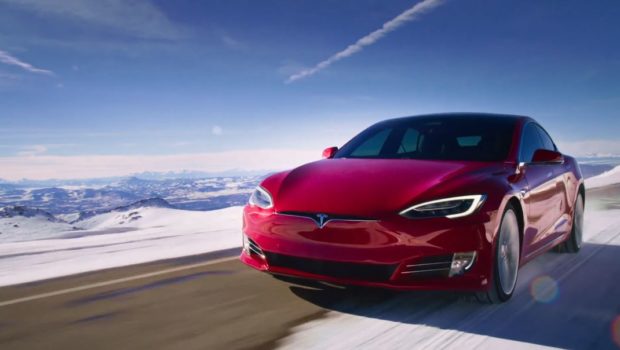Way back at the dawn of the electric car era — about 10 years ago now — the knock on electric cars was that their batteries wouldn’t last 100,000 miles. Owners would be forced to pay many thousands of dollars to replace them every few years. What’s the point of saving a little bit of money on gasoline if you have spend megabucks to buy a new battery on a regular basis?
You still hear this from fossil fuel advocates trying to scare people out of buying electric cars, but a survey of 350 Tesla drivers by a European contingent of Tesla owners reveals that such concerns are not warranted. Actual Tesla owners report about a 5% drop in battery capacity by the 50,000 mile mark but after than, the rate of degradation drops considerably. On average, cars with 160,000 miles on them still have 90% of their battery capacity remaining. Projecting forward from the real world data available, a Tesla battery should still have 80% battery capacity after 500,000 miles of driving, the group claims. The vast majority of internal combustion engines would have stopped functioning long before then.
As reported by Engadget, Tesla has no battery degradation warranty on its Model S and Model X vehicles but does guarantee the standard battery for the Model 3 will retain 70% of its capacity for 100,000 miles. The guarantee for the long range Model 3 battery is 120,000 miles. By comparison, Nissan guarantees the battery in the LEAF will have at least 66% of original capacity after 100,000 miles.
Average performance is no guarantee of individual performance. The European survey did reveal some Tesla drivers experienced significantly shorter battery life. But in general, people should have fewer concerns about replacing batteries every few years than they did ten years ago — at least if they are driving a Tesla.
Source: Cleantechnica



